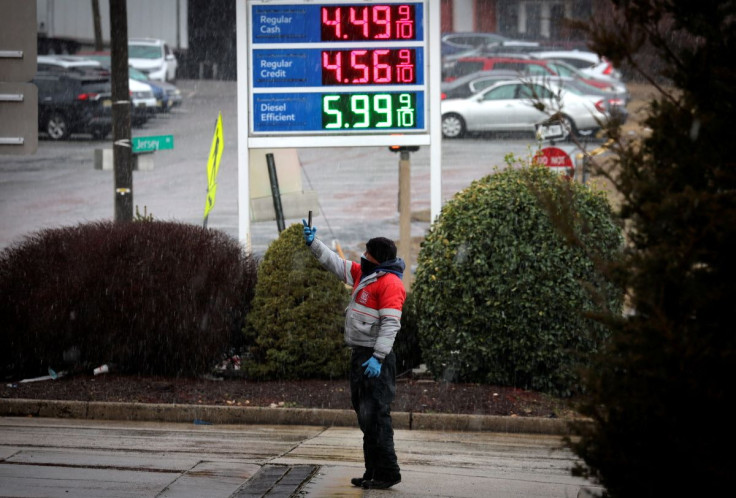American Consumers Are Heading Into A Perfect Storm

American consumers are heading into a perfect storm, fueled by spikes in the price of food, energy and housing, necessities that count for a big chunk of the family budget.
The dire situation American consumers are in is reflected in the March University of Michigan sentiment index released this Friday. It came in at 59.7, down from 62.8 in February, the lowest number in more than a decade, thanks to a spike in the cost of living as measured by the change in the Consumer Price Index (CPI).
According to The Bureau of Labor Statistics, the U.S. CPI soared in February, rising to 7.9%, up from 7.5% in January. The February inflation number is the highest in the last 40 years.
The CPI has been driven higher mainly by a hike in gasoline prices, up 6.6% in February. It accounted for almost a third of the monthly increase. Food rose 1% and housing 1.4%. Both were the most significant monthly increases since April 2020.
Housing is the latest addition to the food and energy inflation, which was brewing well before the Russia-Ukraine war, driven by supply chain bottlenecks and labor market frictions and accommodated by precipitous monetary easing. But the war made things far worse. Russia and Ukraine are among the world’s largest grain producers and exporters, while Russia is a major energy exporter, too.
Rising inflation diminishes the real value of incomes, especially people's incomes at the low end of the income distribution. Thus, it depresses consumer sentiment. And things are expected to get worse in the near future, according to the Michigan report.
"Consumer sentiment continued to decline due to falling inflation-adjusted incomes, recently accelerated by rising fuel prices due to the Russian invasion of Ukraine,” said the University of Michigan report. “The year-ahead expected inflation rate rose to its highest level since 1981, and expected gas prices posted their most significant monthly upward surge in decades. The largest proportion of personal finances was expected to worsen in the year ahead since the surveys started in the mid-1940s."
Is there a silver lining ahead?
It all depends on a couple of things.
One of them is whether job growth that has been strong in recent months will maintain momentum, providing a cushion for people returning to work. Then there's the state of the war, which is the most significant source of uncertainty.
"The greatest source of uncertainty is undoubtedly inflation and the potential impact of the Russian invasion of Ukraine," adds the University of Michigan report. "In the March survey, 24% of all respondents spontaneously mentioned the Ukraine invasion in response to questions about the economic outlook. The impact of this recognition was associated with a drop of 13.2 index points in the Index of Consumer Expectations across all households."
While it's still unclear how long the Russia-Ukraine war will last, one thing is clear: American consumers are in for a rough time, as has been the case with investors. They have seen their wealth dwindling under the pressure of inflation and the prospect of higher interest rates.
© Copyright IBTimes 2024. All rights reserved.





















